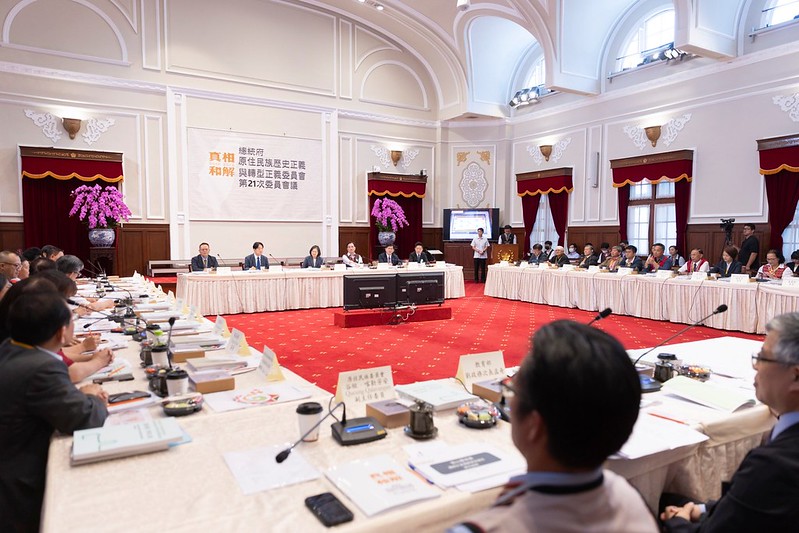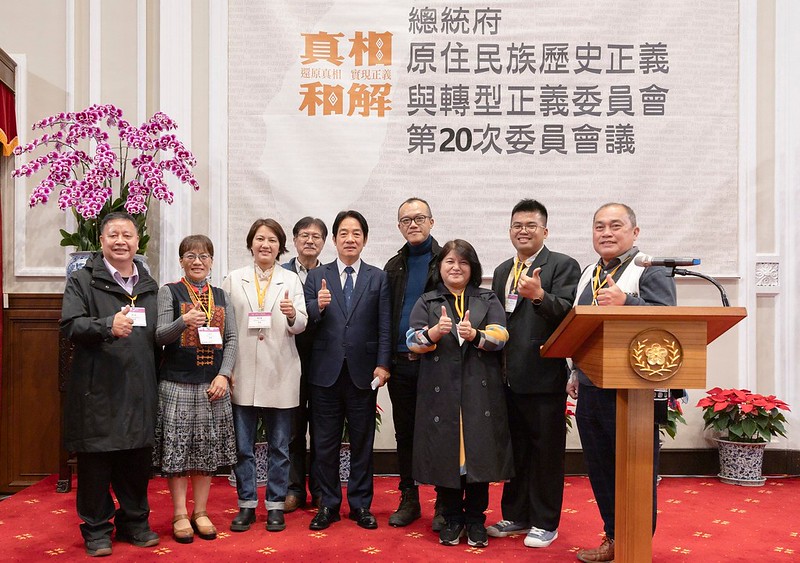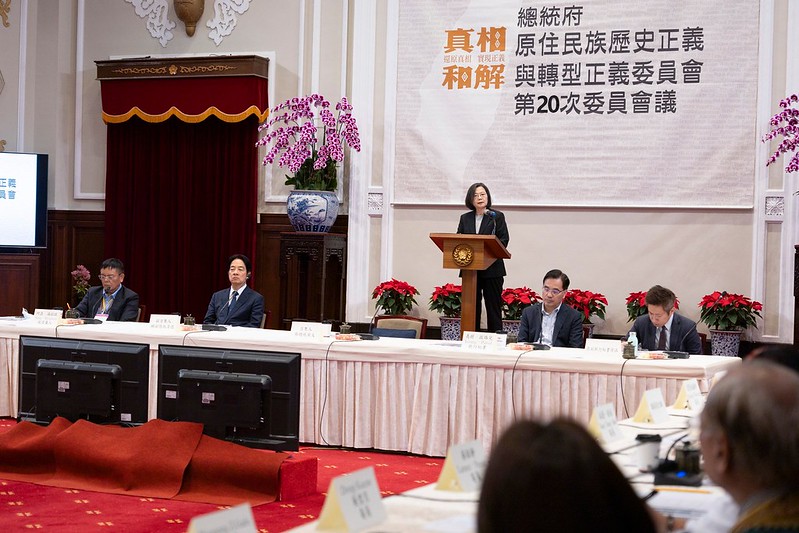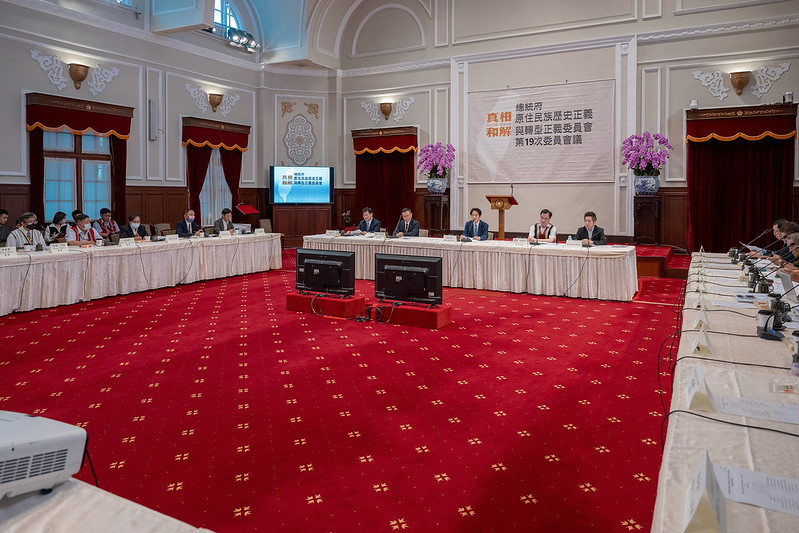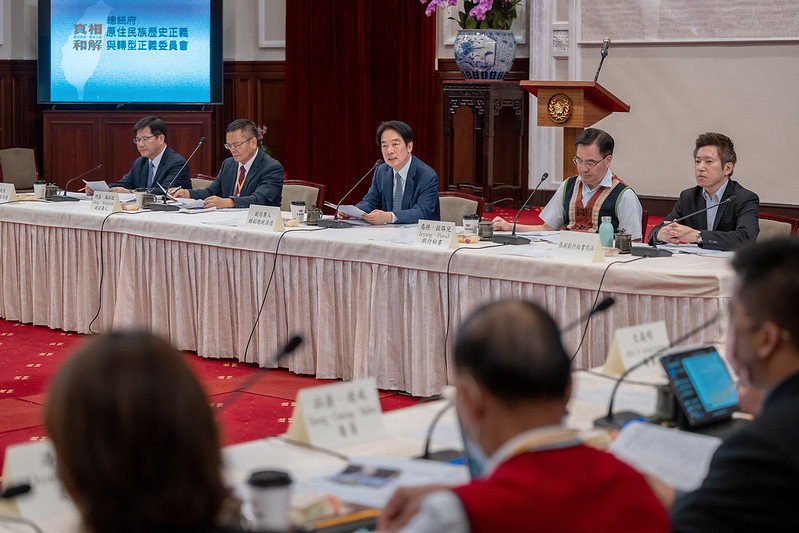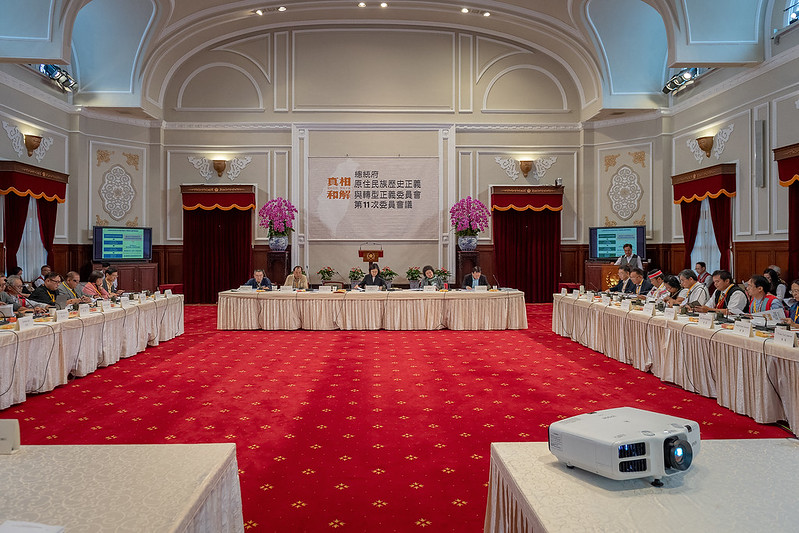News & activities
 News releases
News releases
Committee Convener President Tsai Ing-wen presided over the 11th meeting of the Presidential Office Indigenous Historical Justice and Transitional Justice Committee (hereafter the Committee) on October 17. The meeting ran for approximately two hours.
The Committee heard a progress report on lands reserved for indigenous peoples and a midterm progress report from the Subcommittee on Languages and then discussed a national spatial planning proposal submitted by a Committee member.
Council of Indigenous Peoples (CIP) Minister Icyang Parod (夷將.拔路兒) delivered a progress report regarding lands reserved for indigenous peoples. After responses from Vice Minister of Economic Affairs Chuan-Neng Lin (林全能) and Forestry Bureau Director General Lin Hwa-ching (林華慶) and an exchange of views by Committee members on the report, President Tsai made three points:
First, the president thanked the CIP for its report and the relevant ministries and agencies for their subsequent input. She noted that the issues arising from lands reserved for indigenous peoples are complex and diverse, but Committee members have actively provided suggestions and government colleagues have been implementing them. Issues involving individual cases, as well as overall legal system and policy adjustments, are all being resolved, step by step.
Second, the president said she will request that the Executive Yuan complete legislative and policy tasks regarding lands reserved for indigenous peoples as planned, and asked relevant government agencies to lend their assistance.
Third, the president pointed out that indigenous land issues—including lands reserved for indigenous peoples—must be addressed collectively by all of Taiwan's different ethnic groups. We all need to learn about and understand history and communicate with each other to gradually eliminate biases and move toward reconciliation and sustainable development. The president urged Committee members, subcommittee staffers, and government colleagues to continue working together to achieve these long-term goals.
Masegeseg Z. Gadu (童春發), convener of the Subcommittee on Languages, briefed the Committee entirely in Paiwanese on "The Loss of Indigenous Languages and Opportunities for Revival." He explained how indigenous language usage dwindled under Japanese rule and after World War II, as well as the status of current efforts to revive them.
Vice Minister of Culture Lee Lien-chuan (李連權), CIP Deputy Minister Calivat.Gadu (鍾興華), and Deputy Minister of Education Fan Sun-lu (范巽綠) then responded to the report, explaining the successes of their respective agencies in promoting indigenous language development in compliance with the provisions of the "National Languages Development Act" and the "Indigenous Languages Development Act." After a lively exchange of views with Committee members, the president made two comments:
First, the president thanked Subcommittee on Languages convener Masegeseg Z. Gadu for his report, and said it was quite moving to hear the entire report delivered in Paiwanese. Most importantly, she said, the report was based on evidence from historical documents and oral histories, offering historical context for the erosion and subsequent revival of Taiwan's indigenous languages, as well as providing a vision for the future.
Second, language is the lifeblood of any ethnic group, she continued. All of Taiwan's mother tongues—indigenous and otherwise—play a key role in the sustainable development of Taiwan's diverse cultures. Over the past three years, said the president, our government has changed its overall policy on languages, emphasizing the importance of and supporting mother tongues as much as possible. The president then specially requested that the relevant government agencies provide more support to ethnic groups with smaller populations.
Third, the Ministry of Culture, the CIP, and the Ministry of Education have all taken measures to implement the "National Languages Development Act" and the "Indigenous Languages Development Act." The president asked colleagues in government agencies to actively continue their efforts and bolster inter-ministerial cooperation to help various indigenous peoples pass on and develop their mother tongues.
During the meeting, Committee members made a total of 32 proposals and two extemporaneous motions. The meeting discussed three of the proposals regarding national spatial planning submitted by Atayal tribe representative Losing Asan (雲天寶) and Tsou tribe representative voe-uyongana (吳新光).
After discussing those proposals with Committee members and hearing a response from Deputy Minister of the Interior Chiu Chang-yueh (邱昌嶽), the president issued the following three directives:
First, national spatial planning can ensure sustainable development of the nation's land, an issue of great importance for everyone living in Taiwan, and for future generations. The president said she shares the Committee members' concern about national spatial planning.
Second, the "Spatial Planning Act" has clear provisions governing participation in public affairs, information disclosure, and the protection of indigenous rights. National spatial plans are not set in stone, but subject to comprehensive periodic reviews, and revised as necessary. The president hopes the Ministry of the Interior will carry out its duties in accordance with the law, and continue implementing applicable legal provisions.
Third, the president asked the relevant government agencies to refer to Committee members' expressed views as they continue to promote spatial plans that are consistent with the future needs of Taiwan society and maintain communication and dialogue with society.
